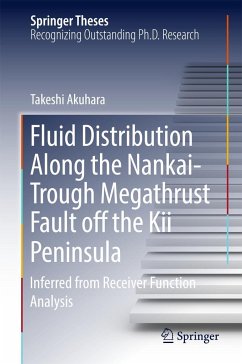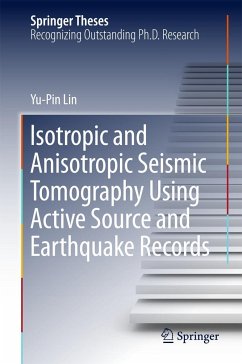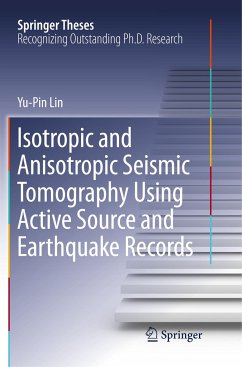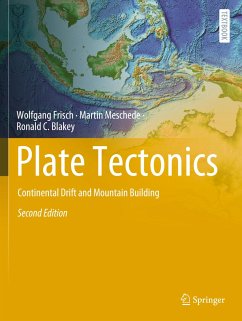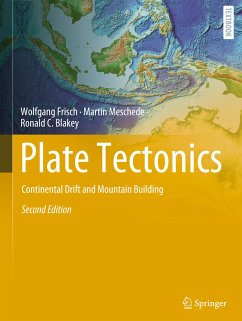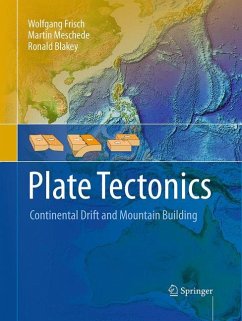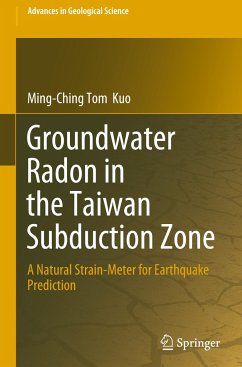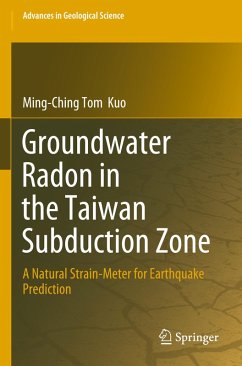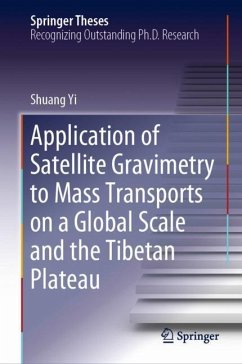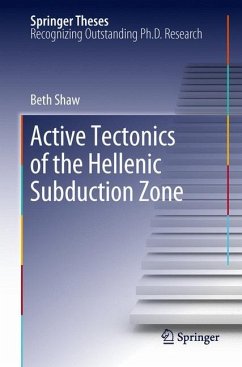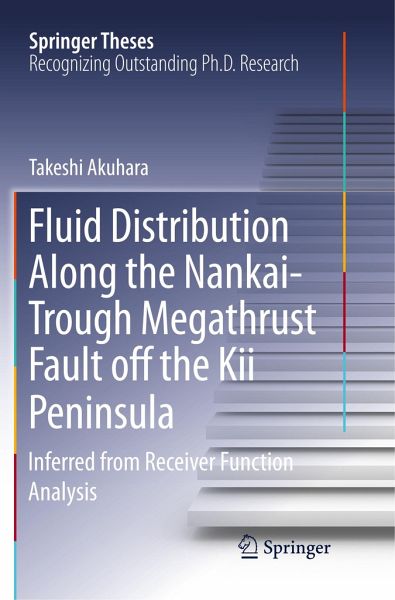
Fluid Distribution Along the Nankai-Trough Megathrust Fault off the Kii Peninsula
Inferred from Receiver Function Analysis
Versandkostenfrei!
Versandfertig in 6-10 Tagen
38,99 €
inkl. MwSt.
Weitere Ausgaben:

PAYBACK Punkte
19 °P sammeln!
This thesis explores fluid distribution along the Nankai-Trough megathrust fault around the Kii Peninsula of Japan, where devastating earthquakes are expected to occur in the near future. Exploring fluid distribution along subduction zones is an important issue because the fluid is considered to control the occurrence of earthquakes. One of the effective strategies to estimate fluid content is retrieving receiver functions (RFs) from seismograms, but in the case of ocean-bottom seismometers (OBSs), noisy P-wave reverberations within the seawater column make such an analysis difficult. The auth...
This thesis explores fluid distribution along the Nankai-Trough megathrust fault around the Kii Peninsula of Japan, where devastating earthquakes are expected to occur in the near future. Exploring fluid distribution along subduction zones is an important issue because the fluid is considered to control the occurrence of earthquakes. One of the effective strategies to estimate fluid content is retrieving receiver functions (RFs) from seismograms, but in the case of ocean-bottom seismometers (OBSs), noisy P-wave reverberations within the seawater column make such an analysis difficult. The author therefore developed a novel technique to suppress the water reverberations, which allows obtaining the fluid distribution data along a wide depth range on the plate interface.
This thesis first presents the new technique, called the water layer filter method, and demonstrates its efficiency by using both synthetic and observation data. Then, using the method, a receiver functionimage of the Philippine Sea Plate is constructed to reveal dehydration processes of the subducting oceanic crust around the Kii Peninsula. Finally, the author performs high-frequency receiver function inversion analysis. The results indicate the presence of a thin fluid-rich sediment layer along the megathrust fault off the Kii Peninsula that acts as a pathway of fluid.
Nowadays, the number of offshore observations is increasing worldwide. In this respect, the attempt to better analyze OBS data employing the new method will become more important in future studies.
This thesis first presents the new technique, called the water layer filter method, and demonstrates its efficiency by using both synthetic and observation data. Then, using the method, a receiver functionimage of the Philippine Sea Plate is constructed to reveal dehydration processes of the subducting oceanic crust around the Kii Peninsula. Finally, the author performs high-frequency receiver function inversion analysis. The results indicate the presence of a thin fluid-rich sediment layer along the megathrust fault off the Kii Peninsula that acts as a pathway of fluid.
Nowadays, the number of offshore observations is increasing worldwide. In this respect, the attempt to better analyze OBS data employing the new method will become more important in future studies.



